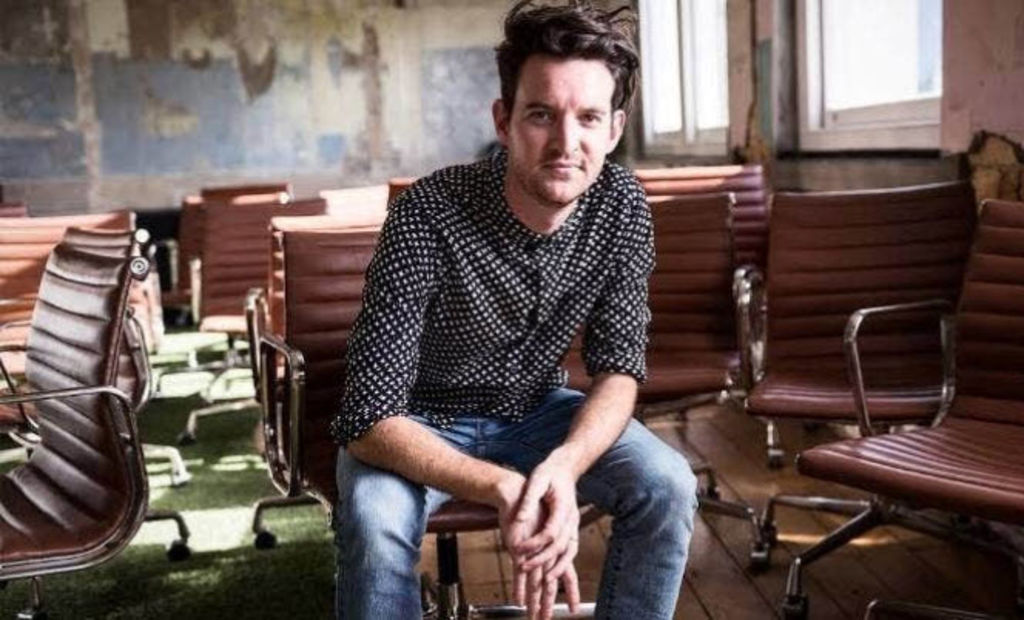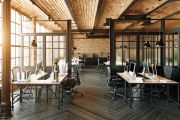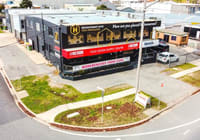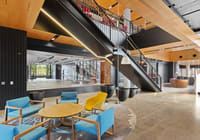
Co-working is bouncing back in New Zealand, as long-term office leases are tipped to fall
Two leading co-working office space providers say business is bouncing back though thrifty companies are sharing desks more now than they did before Covid-19 hit.
Over the next three to five years businesses are expected to decrease their office tenancies as their leases expire and the work from home trend remains a lasting legacy of the pandemic.
Wellington business Digital Nomad owner Vaughan Wilson said it was becoming more and more common for companies to take fewer desks than they had staff because the entire staff was seldom in the office together as people continued to work from home.
“It’s not something that pre-existed in our case before Covid.”
John Mark Stahl is one of the many emerging from a home office – but not yet headed back to the office. He is now finding a comfortable middle ground in a co-working space at Workco in downtown Birmingham – which just opened this week.
“They don’t want to take as many desks as they might have, but at the same time there are also more companies that are wanting to do co-working rather than take long-term leases because of Covid.
“That’s a general statement because a lot of companies have done quite well either because of Covid or as an outcome of the economic growth post-Covid,” Wilson said.
Co-working was appealing to all sorts of businesses, he said. And more wanted “offices within the offices”.
Digital Nomad had started with open-plan space but was now offering some separated office space and would offer more of that when it opened three new sites in the first half of next year.
The company had six co-working sites in the capital before the first lockdown in late March 2020 and added three after lockdowns lifted. Its sites offered 30 to 50 desks generally. Wilson expected its 294 desks now to grow to about 460 by June next year.
John Moffett, general manager of Generator, a pioneer of co-working, said it had tweaked its offering to allow tenants to take fewer desks than members of staff. Staff would hot desk or share desks.
“You don’t need to have one desk per person any more.”
Generator is at the premium end of the co-working market with its parent company Precinct Properties one of the biggest office property developers and owners in the country.
Generator planned to enter the Wellington market in November offering 3000 square metres of co-working space. It has strengthened and upgraded the former Dunbar Sloane building in central Wellington for that purpose.
Generator plans to add another 3000sqm of co-working space in a new office building near Parliament at 40 Bowen Street, now under construction by Precinct. The building is scheduled for practical completion late next year.
Moffett said demand for co-working office space had bounced back to 85 per cent occupancy at Generator after dipping to 65 per cent occupancy in September 2020, from 97 per cent before Covid.
And Generator forecast occupancy would be back to pre-Covid levels by the end of the year.
“It’s looking like the next couple of years will be full on,” he said.
Generator offered facilities like a cafe, bar, conference and meeting rooms and its prices included rates, power and internet, printing and other services needed by businesses.
Its tenants, ranging from large to small businesses, wanted flexibility not only in the type of space offered but also in the lease terms. They did not want to be left locked into paying for a large and long-term lease if there were more lockdowns or similar restrictions.
Traditional offices would remain the biggest part of the office market, but more corporates wanted flexibility.
“What people are doing is they are taking a traditional office, and then they’re using us as an adjunct product to flex up and down their business. For Precinct that makes absolute sense,” Moffett said.
CBRE co-working space analyst, Gergely Gaspardy, said its recent occupier sentiment survey showed just over half Australian and New Zealand businesses expected to use more flexible office space in the future.
And just over half of multinational companies with offices in Australia and New Zealand wanted to have flexible space in their portfolios. They expected to decrease the amount of office space they leased in the next lease cycle over three to five years.
This article first appeared on Stuff.co.nz. Read the original here.










